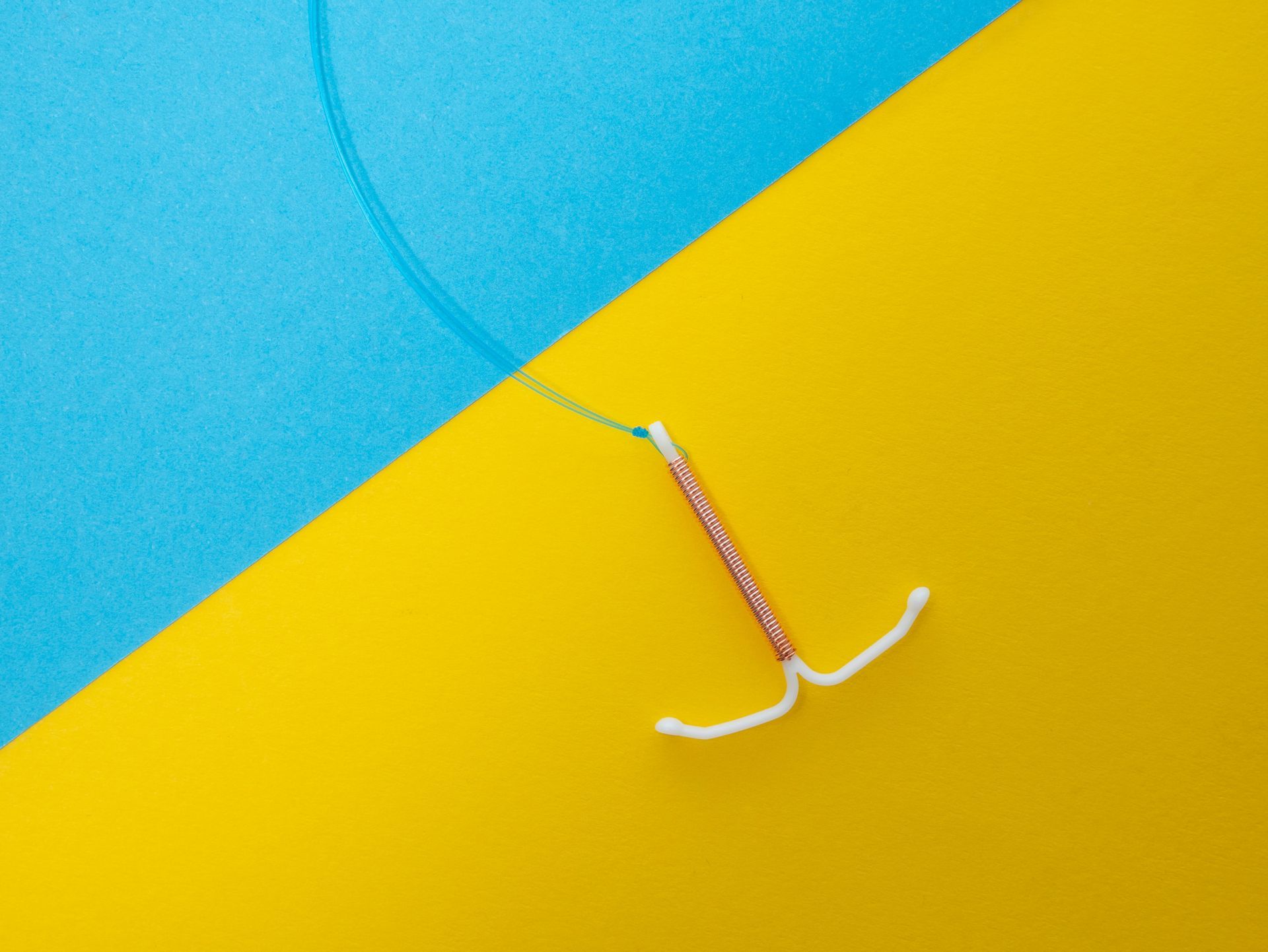What is an IUD and what makes it an effective birth control method?
What is an IUD?
IUD stands for intrauterine device and at times it is also referred to as an intrauterine contraceptive (IUC). It is one of the most effective birth control options women can get. There are two main types of IUDs, copper IUDs and hormonal IUDs. Both options have a great safety and efficacy profile.
How does an IUD Work?
An IUD is “T” shaped and is approximately 30 mm (3cm) long. For example, the
Flexi-T 300 copper IUD is the smallest available intrauterine contraceptive model in Canada, it measures only 29mm long and 23 mm wide. Once an IUD is inserted by a healthcare professional, women do not feel the IUD. A qualified healthcare professional inserts the IUD into the uterus and the woman is protected from pregnancy for years. The exact method of action depends on whether it is a copper IUD or hormonal IUD, which we will explain in more detail below.
Benefits & Effectiveness
The benefits of an IUD are that they are over 99% effective, it is convenient and it's also mistake free. Once it is inserted properly, you do not have to worry about it. Another positive feature is that IUDs are easily reversible. The IUD can be removed anytime you want and your ability to get pregnant quickly returns. IUDs are considered long-acting reversible contraceptives (LARCs) and are substantially more effective during typical use than hormonal contraceptive pills or condoms.
The Canadian Paediatric Society endorsed LARCs as the first-line option for contraception for Canadian youth.
It is important to remember that the IUD is one of the most effective and convenient methods to prevent pregnancy. However, it DOES NOT protect against any sexually transmitted diseased (STDs). It is recommended to use a condom along with the IUD to ensure you are protected against STDs.
What is a Copper IUD: Non-Hormonal Contraceptive?
The copper IUD is hormone free (non-hormonal) and utilizes copper to prevent pregnancy and can last up to 3-10 years depending on the model. The copper IUD is made from a small and flexible “T” shaped piece of plastic that has copper wrapped around it. It is the copper that changes the motility of the sperm (the way the sperm cells move) and prevents the sperm from reaching the egg, which prevents pregnancy. The copper IUD is over 99% effective at preventing pregnancy and it is a hormone free contraceptive, making it a great option for women who prefer non-hormonal birth-control, are breastfeeding or cannot not use contraceptives with hormones because of medical reasons. Also, because it is a non-hormonal contraceptive it does not carry the risk of blood clots related to hormonal birth control options. The copper IUD can even be utilized for emergency contraception. In the
Journal of Obstetrics and Gynecology Canada published in 2012, stated that a copper IUD can be an effective emergency contraception if inserted within 7 days after unprotected sex.
Copper IUD can have
side effects in the first few months after insertion. Non-hormonal IUDs can make the menstrual cycle (period) heavier and cause cramping, especially in the first 3 months. In the case of IUD cramps they get better once your body gets used to the IUD. As mentioned earlier, the copper IUD is easily reversible at any time, so you are always in control.
What is a Hormonal IUD?
As the name suggests, hormonal IUDs (sometimes referred to as Intrauterine Systems (IUS)) utilize hormones to prevent pregnancy. Hormonal IUDs slowly release a small amount of progestin to prevent pregnancy. Progestin is similar to a hormone progesterone that is naturally made by the human body. The hormones that are released by the IUD not only help prevent pregnancy, but it can also help alleviate painful or heavy
periods making it preferable for women who tend to have heavy
periods. In addition, hormonal IUDs can also help treat symptoms associated with conditions like endometriosis. In approximately 20% of cases women stop getting their periods completely while having the IUD. Like the copper IUD, hormonal IUDs prevent pregnancy by not allowing the sperm to fertilize the egg. It achieves this in two ways. First by making the mucus in the cervix thicker and this mucus blocks the sperm from getting to the egg. Furthermore, the hormones can stop the eggs from leaving the ovaries, which means that there is no egg for the sperm to fertilize. Again, like all IUDs, hormonal IUDs are over 99% effective at preventing pregnancy, but once removed they have no impact on fertility. Depending on the model, the IUD can last between 3-7 years. Some of the disadvantages are spotting, irregular periods or cramping. But usually, these side-effects go away within 3-6 months.
Download
our brochure on your phone and talk to your doctor about Flexi-T!













